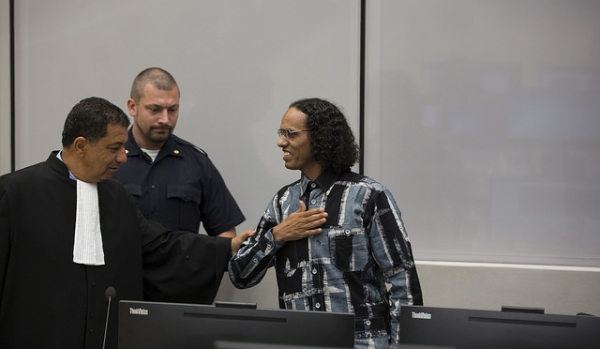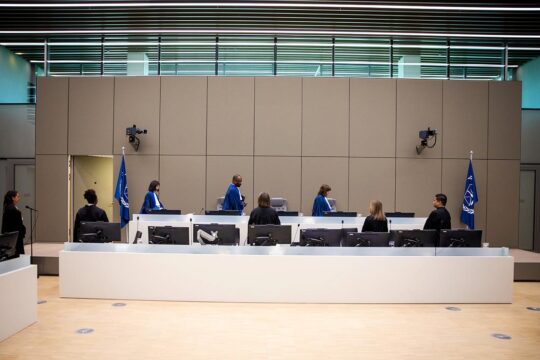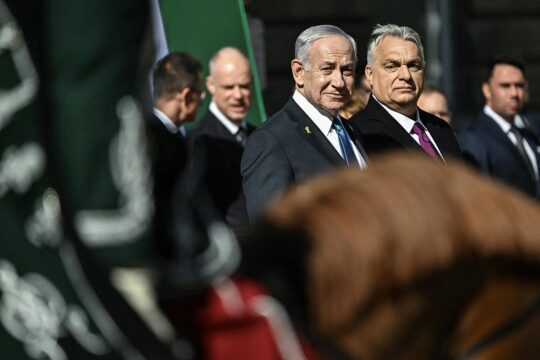Judges of the International Criminal Court (ICC) handed down on Thursday August 17 their reparations order for the victims of Ahmed Al Mahdi. Al Mahdi, who has been convicted by the Court, pleaded guilty to war crimes for the destruction of nine mausoleums and the main gate of the Sidi Yahia mosque in Timbuktu during the occupation of northern Mali in 2012 by Jihadists of Al Qaeda in the Islamic Maghreb (AQMI) and Ansar Eddine.
As well as telling of the crimes committed in Timbuktu in 2012, Al-Mahdi’s case before the ICC was especially about punishing those who destroy cultural heritage. During his trial a year ago, he admitted to supervising attacks on mausoleums in the “city of 333 saints” and the main gate of the Sidi Yahia mosque which, according to legend, would not be opened until the end of the world. “Their destruction thus carries a message of terror and helplessness,” declared the judges as they delivered the reparations order. “It destroys part of humanity’s shared memory and collective consciousness, and renders humanity unable to transmit its values and knowledge to future generations.”
Ahmed Al Mahdi was ordered to pay 2.7 million Euros to his victims, but there is little chance that he will actually pay it. When he arrived in The Hague in September 2015 he was declared indigent and so his defence costs were covered by the Court. His situation is unlikely to improve in the coming years, his lawyers stressed during the procedures. Ahmed Al Mahdi has another seven years to serve in prison. So it is the ICC’s Trust Fund for Victims that must fund the reparations. The judges nevertheless rejected a request from Al Mahdi’s lawyers that his debt be limited in time and he one day be freed from it.
Timbuktu, Mali and the international community
For the ICC, the victims are the inhabitants of Timbuktu, the people of Mali as a whole and the international community. The judges ordered that a symbolic Euro be paid to UNESCO, which, shortly following Jihadist occupation of the town in April 2012, declared the monuments – of which several are listed as world heritage -- protected heritage sites. After the Jihadists were chased out by French forces in 2013, UNESCO supervised identical reconstruction of the mausoleums. But for lawyer Mayombo Kassongo, representing the 137 victims, the spirits never returned to the mausoleums after their destruction, and so now the miracle no longer works.” Thus the damage is irreparable, he deemed during the hearings.
The Trial Court listed three forms of damage: that related to the historic and religious edifices that were attacked; economic damage; and psychological damage. The Court admitted 137 victims and two organizations linked to the cultural heritage of Timbuktu, but judges also called for other victims to be identified, since the 137 did not reflect all the suffering experienced by this town of 7,000 inhabitants at the time of the crimes. The ICC ordered that collective reparations be made in the form of memorials and commemoration ceremonies. The judges also deemed that funds should be allocated to security and maintenances of the mausoleums. As a symbolic gesture, they ordered that the video of Al-Mahdi’s apologies to victims during his guilty plea at trial – considered “genuine, categorical and empathetic” – be posted on the ICC website. Following expert advice, the judges nevertheless rejected any reparations in the form of traditional justice, saying that while some saw this as a mechanism for reconciliation, others saw it as discriminating against women.
Some individual reparations
Individual reparations are to be made to victims who suffered economic damage. The exact nature of these reparations has not yet been decided, but they could take the form of support to economic activities or to the return of those still in exile. The Trust Fund for Victims is to present a report by February 2018. Individual reparations are also to be made to the descendants of people resting in the mausoleums, even if their tombs were not attacked, as Al-Mahdi affirmed during his trial before the Court. Only the buildings around them were destroyed, he said, because they represented for the Jihadists an idolatrous practice according to their reading of Islam. Al-Mahdi pleaded guilty because, he said, he thought the destruction of the mausoleums would be source of despair for the population and therefore unnecessary and risky, but he remained at heart in agreement with the decision of his boss Iyad Ag Ghaly, a Touareg from northern Mali and head of Ansar Eddine.
Limited charges
The Court’s order has been hailed, but the Al-Mahdi case and justice for Timbuktu continue to draw criticism. In a statement, Moctar Mariko, president of the Malian Human Rights Association (AMDH), expressed regret that "the trial of Al-Mahdi before the ICC was limited to prosecuting the destruction of the cultural heritage of Timbuktu, failing to hold him to account for the other crimes against humanity which he and his men have nevertheless committed". The Association, which is a member of the International Federation for Human Rights (FIDH), had filed a complaint against him in Bamako for crimes against humanity, for murders and rapes committed in 2012. The FIDH also draws attention to the trial of Aliou Mahamane Touré, former commissioner of the Islamic police of Gao, which is due to open on August 18 before the Criminal Court of Bamako, but says the charges of “aggravated assaults” brought against him do not reflect the war crimes that were committed. In The Hague, ICC Prosecutor Fatou Bensouda is continuing investigations launched in January 2013 into crimes committed in Mali. Bensouda is to go to Bamako in September.






